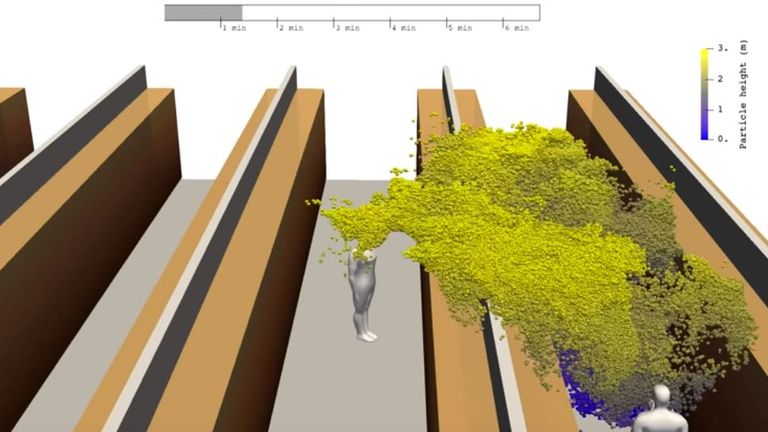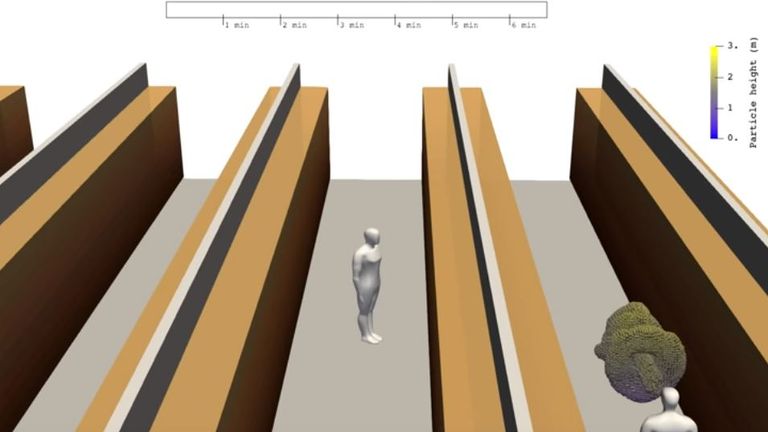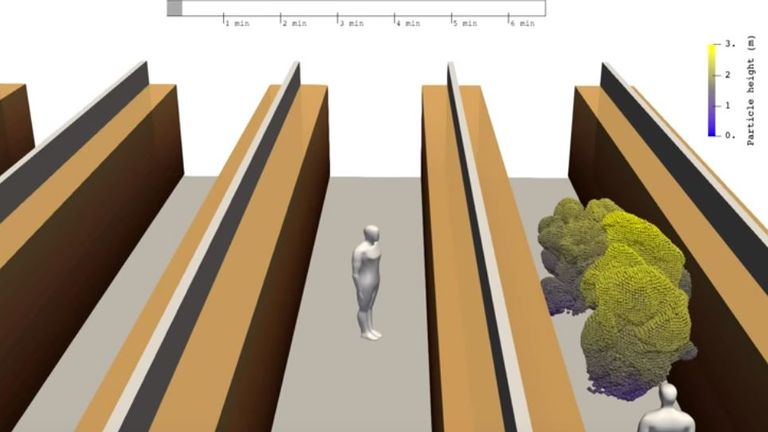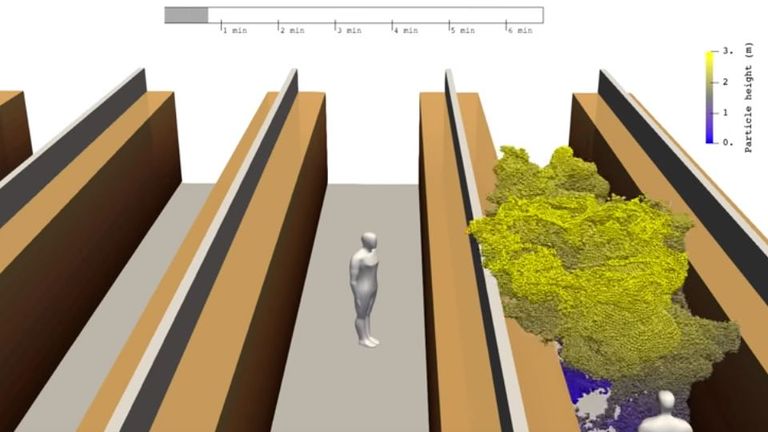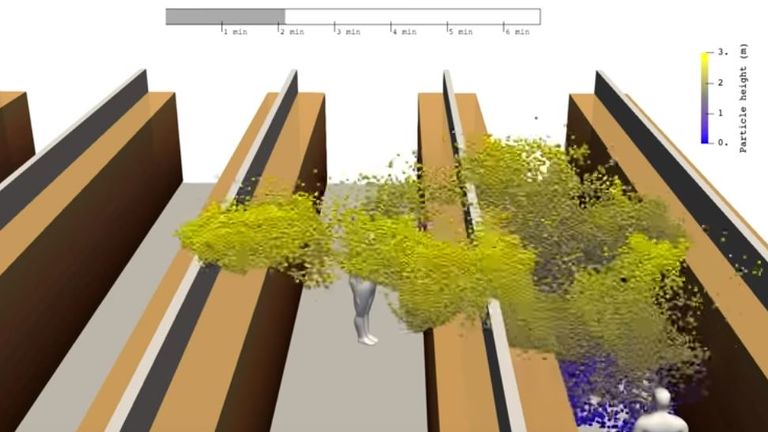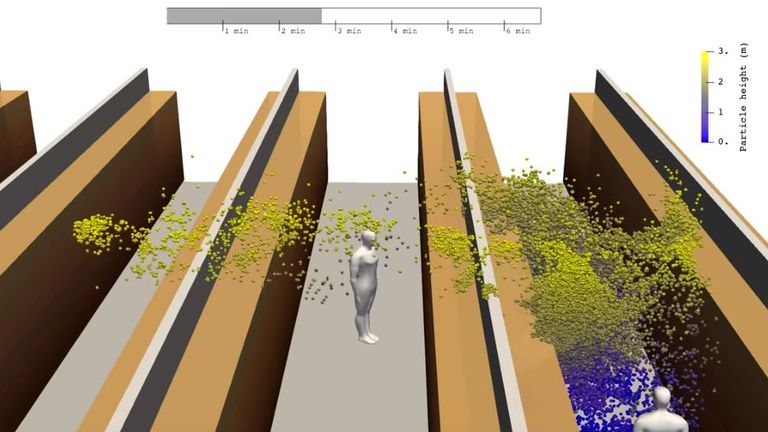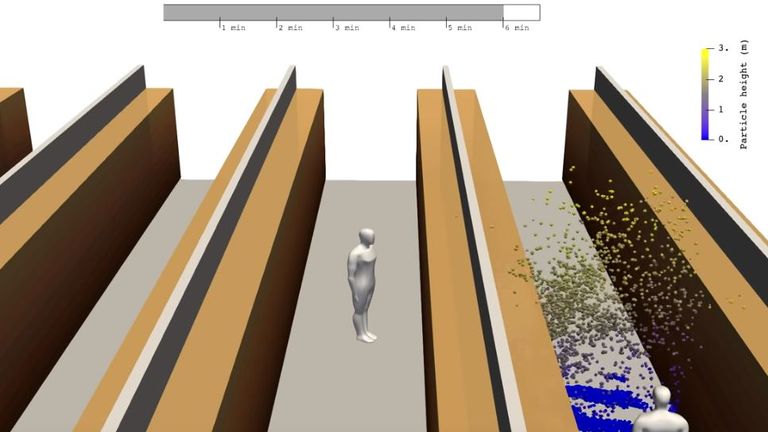Particles carrying the coronavirus can remain in the air longer than previously thought, according to researchers.
Scientists in Finland have released a 3D model showing how coronavirus is transported through extremely small airborne aerosol particles when a person coughs, sneezes or talks.
They said their findings "emphasise the importance of avoiding busy indoor spaces" during the COVID-19 pandemic.
The researchers modelled a scenario where a person coughs in an aisle between shelves, like those found in supermarkets.
They found the aerosol cloud spreads outside the immediate vicinity of the coughing person and dilutes - but this can take up to several minutes.
"Someone infected by the coronavirus can cough and walk away but then leave behind extremely small aerosol particles carrying the coronavirus," said Ville Vuorinen, assistant professor at Aalto University in Finland.
"These particles could then end up in the respiratory tract of others in the vicinity."
For their study, researchers modelled the airborne movement of aerosol particles smaller than 20 micrometres.
For a dry cough, which is a typical symptom of COVID-19, the particle size is typically less than 15 micrometres.
"Extremely small particles of this size do not sink on the floor, but instead, move along in the air currents or remain floating in the same place," the researchers said.
The Finnish scientists said the spread of a virus may slow down or even be suppressed altogether as mobility decreases at "nodal points" - places where lots of people gather, such as shops, restaurants and public transport.
They added that avoiding busy indoor areas reduces the risk of droplet infection while in close proximity to others, which is the main cause of coronavirus infection.
:: Listen to the Daily podcast on Apple Podcasts, Google Podcasts, Spotify, Spreaker
Jussi Sane, chief specialist at the Finnish Institute for Health and Welfare, said the results of the study highlight the importance of people staying at home if they feel unwell and maintaining "physical distance with everyone".
The study was carried out by Aalto University, the Finnish Meteorological Institute, VTT Technical Research Centre of Finland and the University of Helsinki.
The UK government has launched a huge Easter holiday publicity blitz urging the public to stay at home, not visit friends or family and observe the lockdown rules over the weekend.
Launching the campaign, a spokesman said: "We are at a crucial moment in preventing further transmission of coronavirus, and so it is vital that we continue following the government's guidance to stay at home, protect the NHS, and save lives."

